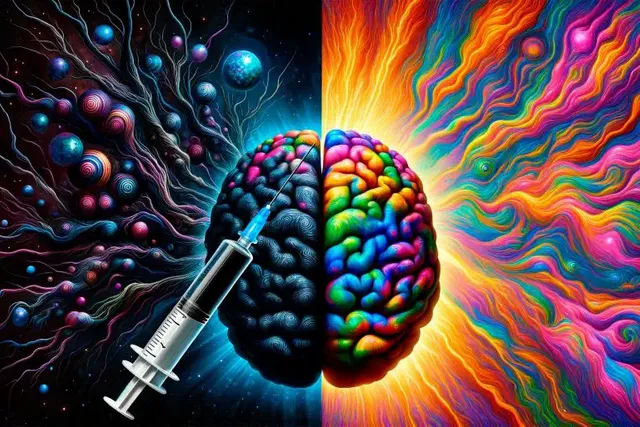Ketamine's Rapid Relief for PTSD and Depression: A Beacon of Hope in Mental Health

Introduction
Post-traumatic stress disorder (PTSD) and depression are debilitating mental health conditions that affect millions worldwide. Despite significant advances in traditional treatments, many patients continue to struggle with persistent and debilitating symptoms. In recent years, ketamine, a medication with a complex history, has emerged as a promising new treatment option, offering rapid and significant symptom relief.
Ketamine's Unique Mechanism of Action
Ketamine, initially developed as an anesthetic, has since been explored for its potential in treating various mental health disorders. Unlike traditional antidepressants that target serotonin or norepinephrine reuptake, ketamine exerts its effects by blocking N-methyl-D-aspartate (NMDA) receptors in the brain. This unique mechanism of action is thought to underlie ketamine's rapid and sustained effects on PTSD and depression symptoms.
Clinical Evidence: A Glimpse of Hope
Mounting clinical evidence supports the efficacy of ketamine in treating PTSD and depression. A recent meta-analysis, published in the Annals of Pharmacotherapy, analyzed six randomized controlled trials involving 259 patients with moderate to severe PTSD. The findings revealed that a single ketamine injection significantly reduced PTSD symptoms by about 25% at one day and one week after treatment. Interestingly, the benefits appeared to be more pronounced in patients with treatment-resistant PTSD, a subgroup that often experiences poor outcomes with traditional therapies.
Ketamine's Advantages in the Treatment Landscape
The rapid onset of action is a key advantage of ketamine over traditional antidepressants, which often require weeks or even months to produce noticeable effects. This rapid relief can be particularly beneficial for patients experiencing severe symptoms or suicidal thoughts, as it can provide immediate symptom reduction while they await the onset of traditional therapies.
Addressing Unresolved Questions and Concerns
While the efficacy of ketamine in treating PTSD and depression is encouraging, several questions remain unanswered. One critical issue is determining the optimal dosing regimen and frequency of ketamine injections to maintain treatment efficacy over time. Additionally, concerns regarding ketamine's potential for abuse and addiction must be carefully addressed through rigorous monitoring and patient education.
The Future of Ketamine in Mental Health Care
Despite these challenges, ketamine holds immense promise as a novel and effective treatment option for PTSD and depression. Ongoing research is focused on optimizing dosing regimens, identifying potential biomarkers to predict treatment response, and exploring the use of ketamine in combination with other therapies. As research advances, ketamine has the potential to revolutionize the treatment of mental health conditions, offering a beacon of hope for millions of individuals struggling with debilitating symptoms.